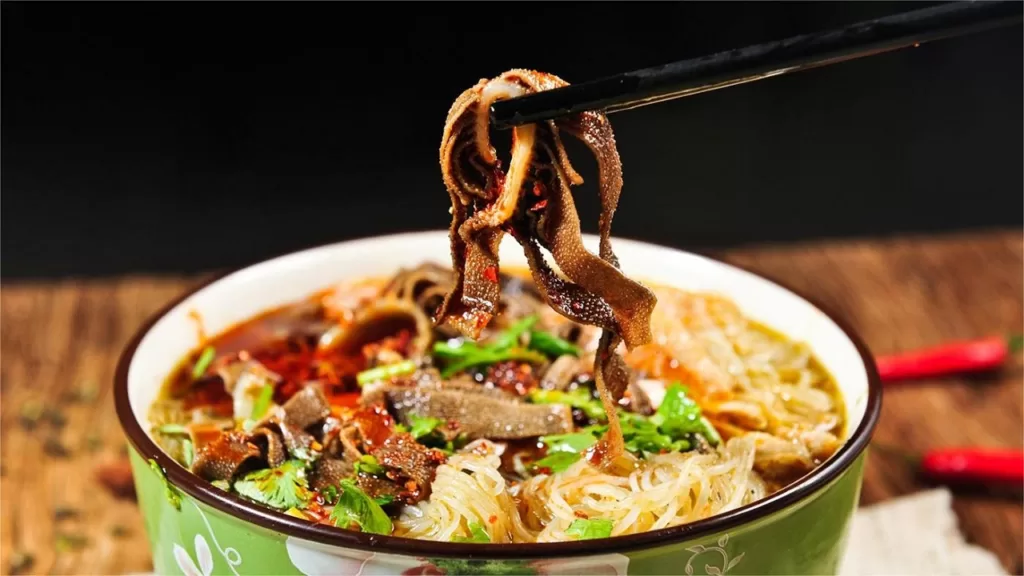Baodu (爆肚) is a traditional Beijing dish that originated in the imperial kitchens of the Ming and Qing dynasties. It is a type of hot pot made with thinly sliced beef tripe and a variety of vegetables, all cooked in a spicy and aromatic soup base.
To make baodu, the tripe is first cleaned thoroughly and sliced thinly. It is then blanched in boiling water to remove any impurities and soften the texture. The soup base is made with a combination of spices such as Sichuan peppercorns, chili peppers, and ginger, as well as other seasonings such as soy sauce and vinegar. The sliced vegetables, which can include cabbage, potatoes, and bean sprouts, are added to the soup base along with the tripe, and everything is cooked together until tender.
Baodu is known for its unique and complex flavors, with the spiciness of the soup base balanced by the mild flavor of the tripe and vegetables. It is often enjoyed during the colder months, as the hot and spicy broth helps to warm the body.
In addition to its delicious taste, baodu is also considered to be a healthy dish. The tripe is rich in protein and low in fat, while the vegetables provide essential vitamins and minerals. It is also believed to have digestive benefits, making it a popular choice for those with digestive issues.
Baodu is typically served in large communal hot pots, with diners sharing the same pot and cooking their own portions at the table. It is a social and interactive dining experience that is popular among families and groups of friends.
Overall, baodu is a delicious and healthy dish that is a must-try for anyone visiting Beijing. It is a testament to the city’s rich culinary history and is a beloved part of Beijing’s food culture.


